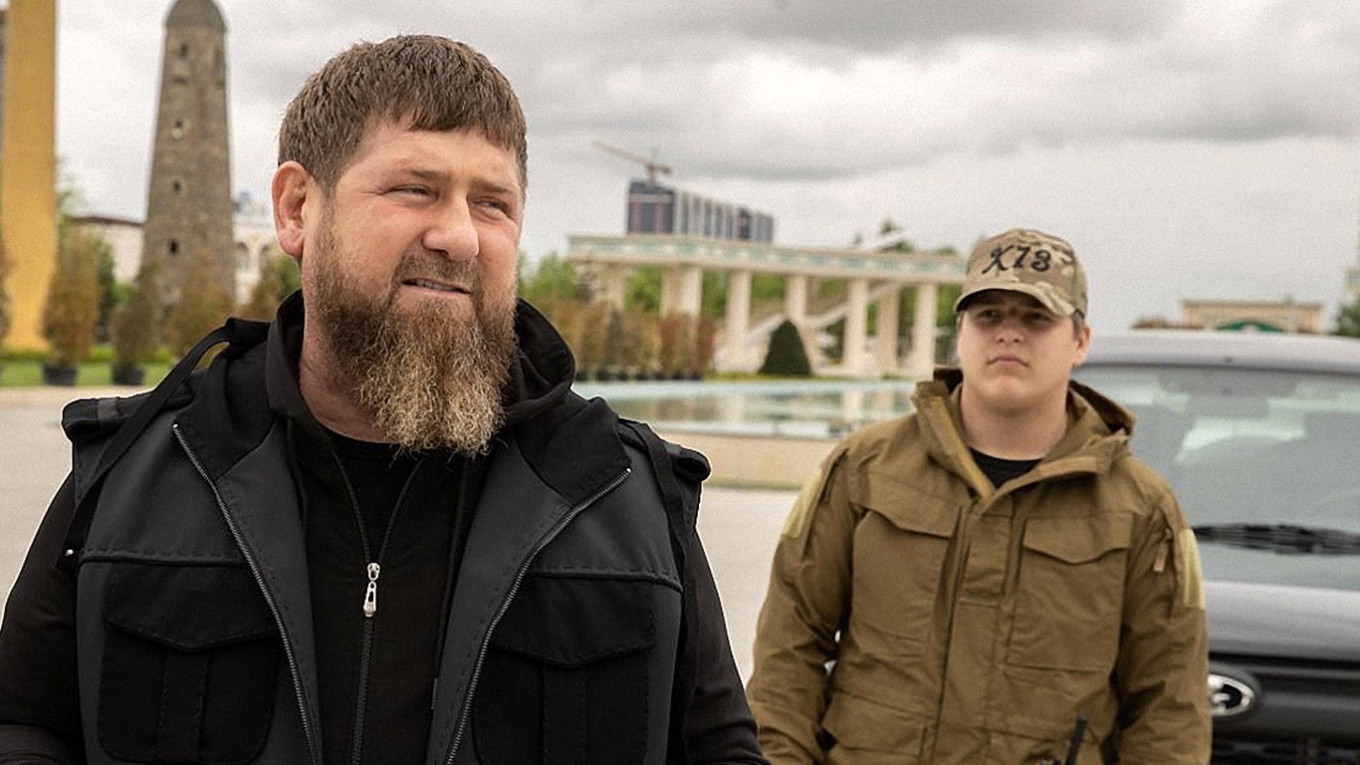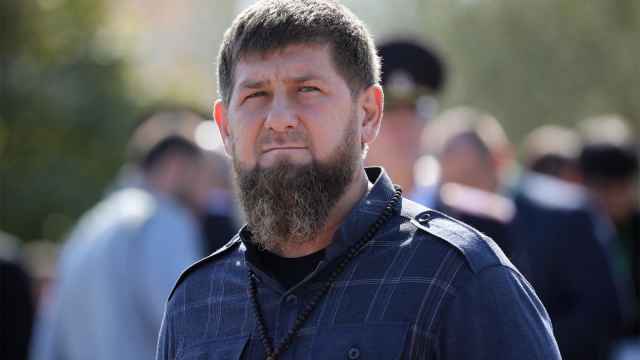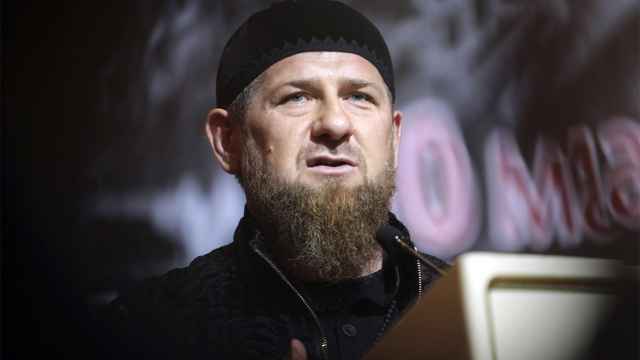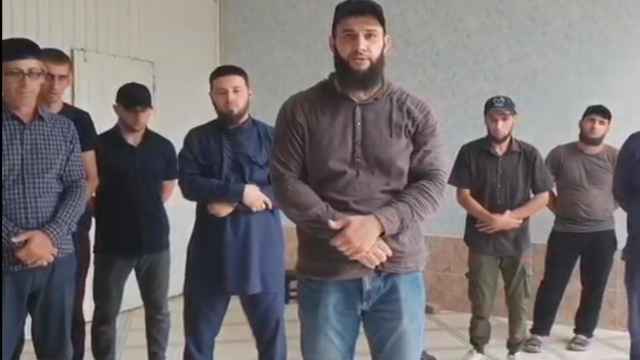The international media regularly publishes sensationalist headlines about Chechnya. “Chechen boss sidelines son for ‘thug’ sibling,” reads a recent article about Adam Kadyrov, the 16-year-old son of regional leader Ramzan Kadyrov.
This recent spike in interest in Kadyrov’s children relates to the many awards recently bestowed on Adam. The Chechen strongman’s son received nine awards in October and November, including the title of “Hero of Chechnya,” the Order “Labor Valor of Russia,” and the Order “For Services to the Kabardino-Balkarian Republic.”
Adam Kadyrov was also recently appointed head of the Chechen leader’s security department and overseer of a rifle battalion — quite a set of achievements for a teenager.
What should we make of this? Is Adam being groomed to succeed his father as leader of Chechnya, in preference over his older brother Akhmat? Is the matter of succession now more urgent because Ramzan is — according to rumors and reports — gravely ill?
The honest answer is that we don’t know. To appreciate the full range of possibilities, it’s helpful to zoom out from current specifics to what appears to be a constant of Chechen — and Russian — politics.
In September, global attention turned to Chechnya amid suggestions that Ramzan Kadyrov was hospitalized, or even dead. Such reports have proven to be greatly exaggerated.
Both Kadyrov and President Vladimir Putin have been claimed to be suffering from terminal illnesses. On several occasions, both have been reported to have died, only to appear in public soon after.
One might think that this would make analysts and journalists think twice about jumping to conclusions. But the claims themselves just won’t die. Why not?
More than anything, these recurrent claims reflect the personalist nature of Russian and Chechen autocracy. So much appears to depend on these rulers that their health becomes fundamental to the system’s functioning, generating intense speculation if anything even hints that their ability to govern could be impaired.
This is not to say that everything depends on these particular individuals. Neither Putin nor Ramzan Kadyrov have constructed systems that rely entirely on them to function. But their centrality is enough to foster conditions ripe for rumors concerning their ability to rule.
The timing of Adam Kadyrov’s promotions and accolades is particularly interesting. On Sept. 25, Ramzan Kadyrov published a video on Telegram showing Adam beating up a young man detained on accusations of burning a copy of the Quran.
The Chechen leader praised his son for this shocking, illegal violence against an individual detained by the state, saying: “I’m proud of Adam’s actions … he did the right thing.”
The violence was widely condemned, but the response from Russian officials was muted.
Shortly after publishing the video, Ramzan Kadyrov visited Putin in the Kremlin. When asked about Adam Kadyrov’s actions, presidential spokesman Dmitry Peskov declined to answer questions on the topic, saying he did not want to.
Peskov’s silence is easy to explain. Moscow is trapped between two things: on one hand, maintaining its support for Ramzan Kadyrov’s tight grip over Chechnya, fearing that the end of strongman rule might result in a return to regional instability; and, on the other hand, its legal-constitutional obligations to prosecute alleged crimes. It appears that in this case, the former trumped the latter.
Lawyers interviewed by BBC News Russian stated that those involved in the beating, as well as in the dissemination of its recording, are potentially liable for prosecution under a minimum of nine articles of Russian legislation.
In the context of this controversy, Adam’s awards can be seen as public shows of support for him and his family, more broadly. Ramzan Kadyrov does not need to be in poor health for these awards to make sense.
Adam is not the only child of Ramzan Kadyrov to receive awards and appointments recently, however. His daughter, Aishat Kadyrova, was promoted from Chechnya’s Culture Minister to its Deputy Prime Minister in early October. And Akhmat Kadyrov — the eldest son — was appointed First Deputy of the Chechen Republic for Physical Culture, Sport and Youth Policy in November.
All this looks like a broader effort to bolster the position of the family, placing them at the center of Chechnya’s formal power structures. It may well be that Ramzan Kadyrov is seriously ill and may soon be unable to defend his family’s grip over the republic. But then again, this could simply be longer-term planning by the current leader.
Even if Ramzan Kadyrov is gravely ill, he would not be able to pass on formal leadership of the republic directly to one of his children, given their ages. Article 64 of the Chechen constitution states that individuals must be at least 30 years old to be elected head of the republic.
We need to be honest and upfront about the limits to our knowledge — and be ready to push back against conclusions that jump the gun.
Of course, this plea for caution won’t be heeded by click-hungry publications that are ready to indulge in gossip, rather than carefully evaluate the evidence at hand.
When it comes to Chechnya, saying “we just don’t know” might not sell. But it’s the truth.
A Message from The Moscow Times:
Dear readers,
We are facing unprecedented challenges. Russia's Prosecutor General's Office has designated The Moscow Times as an "undesirable" organization, criminalizing our work and putting our staff at risk of prosecution. This follows our earlier unjust labeling as a "foreign agent."
These actions are direct attempts to silence independent journalism in Russia. The authorities claim our work "discredits the decisions of the Russian leadership." We see things differently: we strive to provide accurate, unbiased reporting on Russia.
We, the journalists of The Moscow Times, refuse to be silenced. But to continue our work, we need your help.
Your support, no matter how small, makes a world of difference. If you can, please support us monthly starting from just $2. It's quick to set up, and every contribution makes a significant impact.
By supporting The Moscow Times, you're defending open, independent journalism in the face of repression. Thank you for standing with us.
Remind me later.








